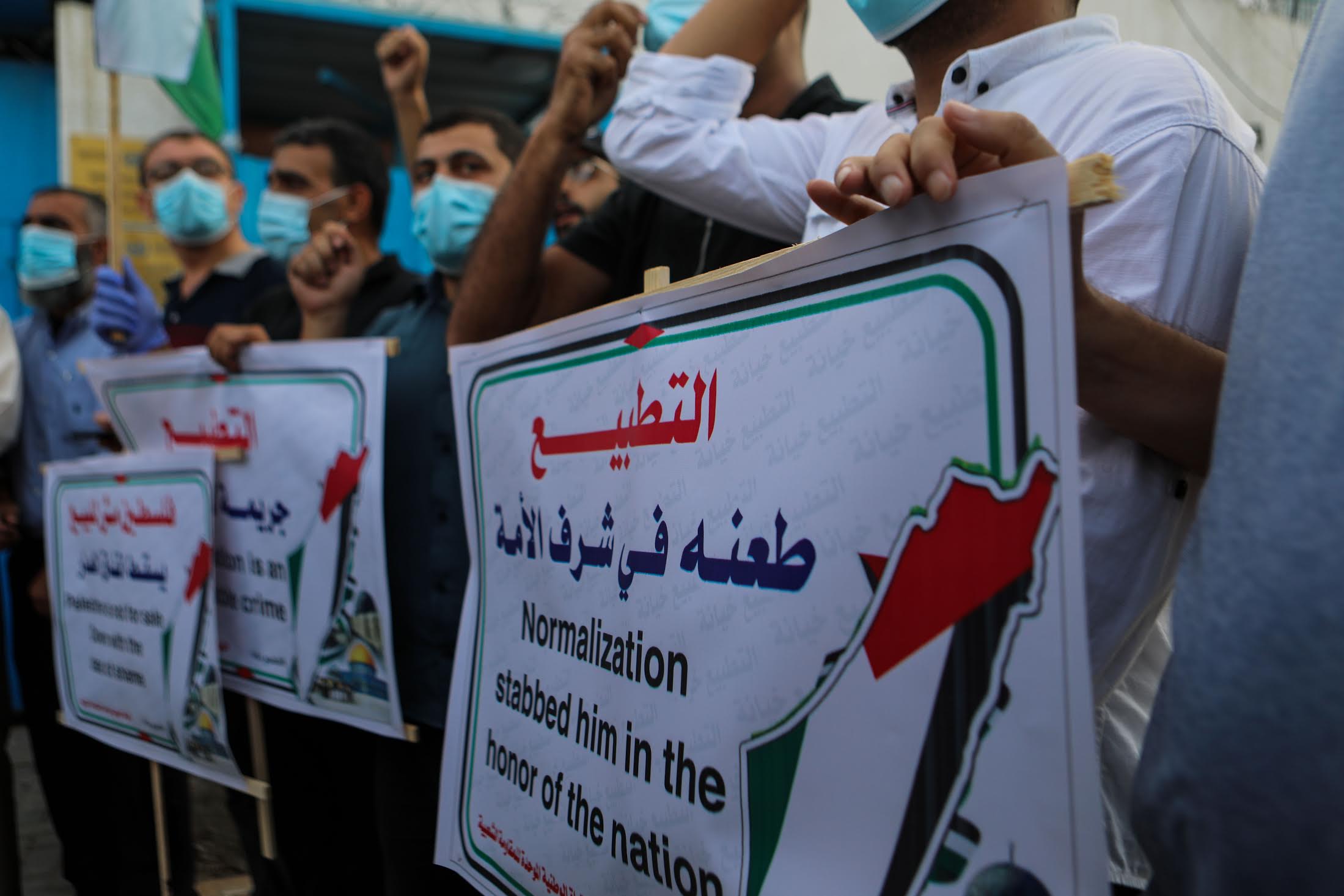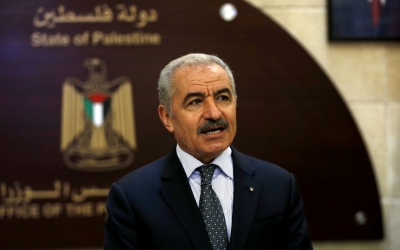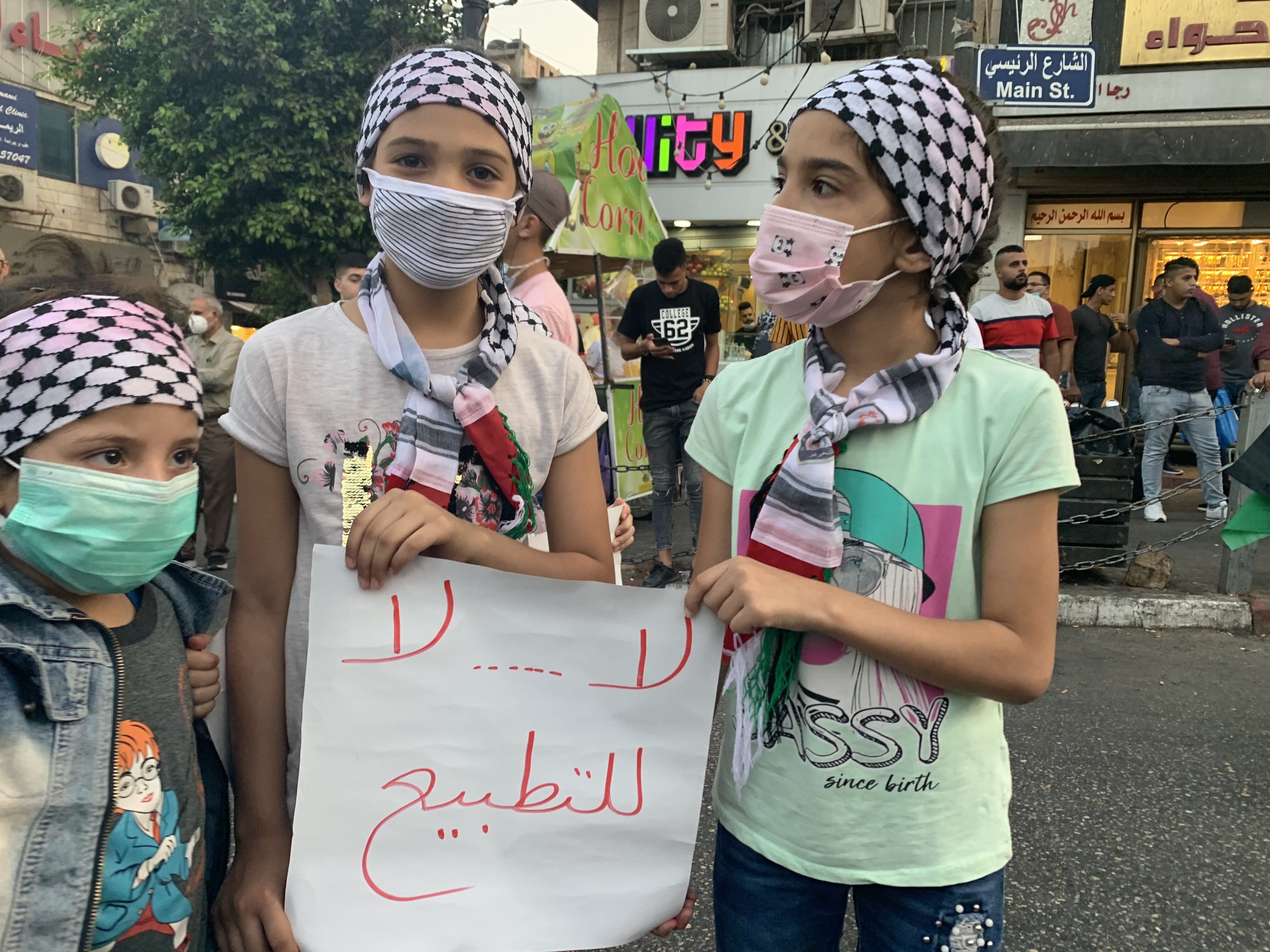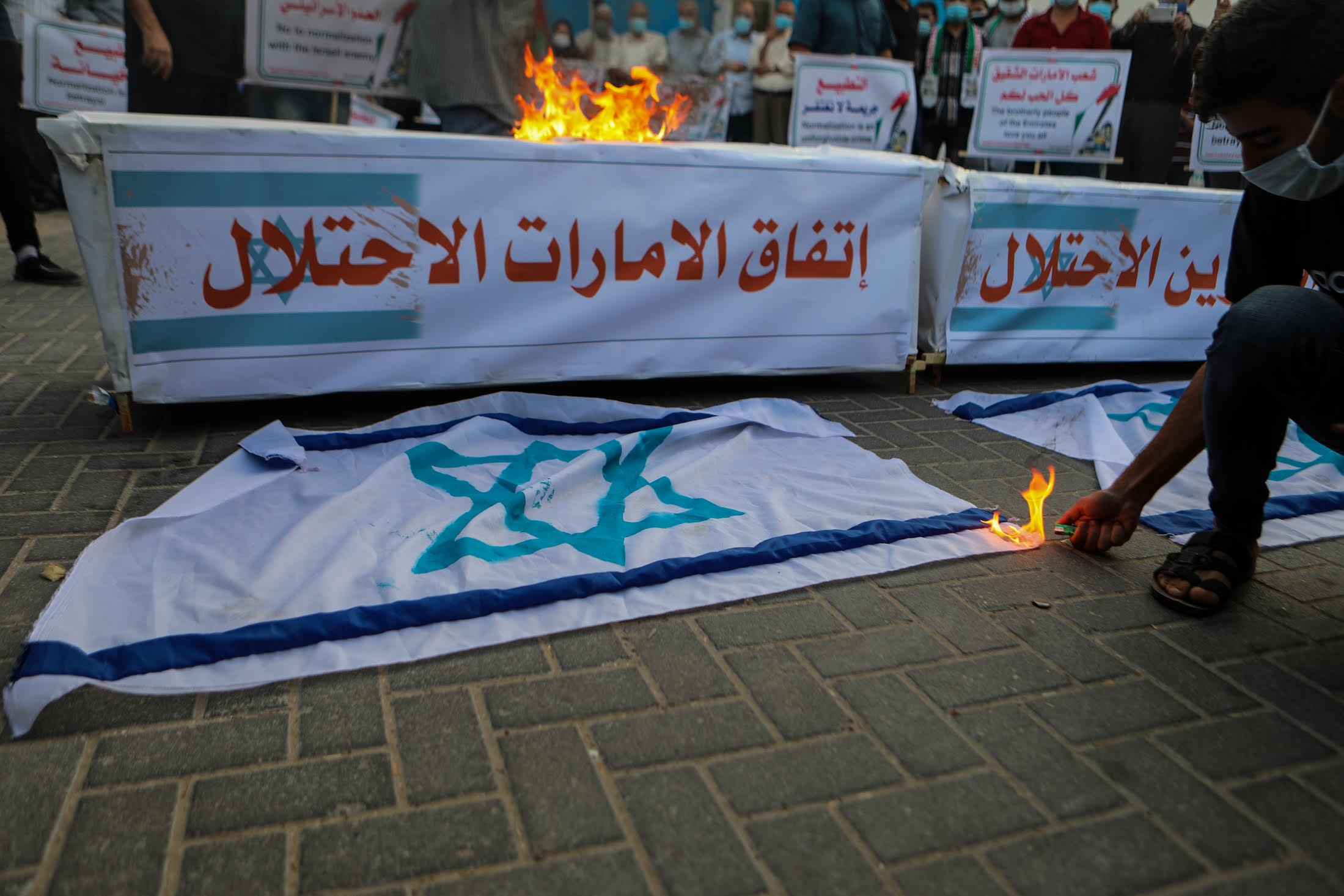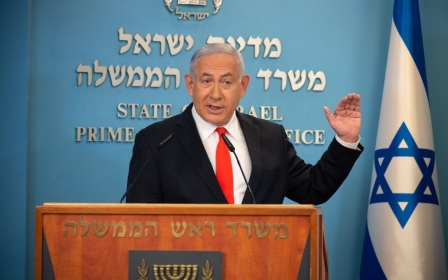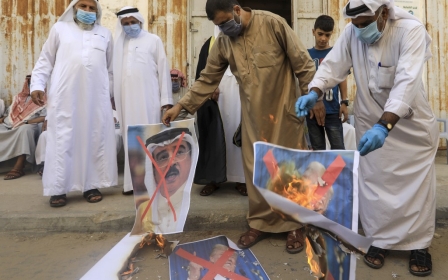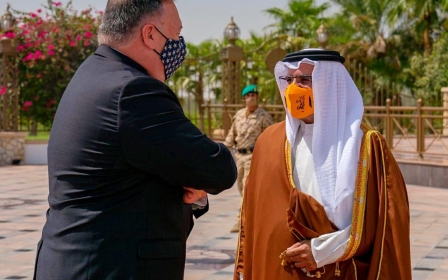Palestinians stage 'day of uprising' against normalisation deal between Israel, UAE and Bahrain
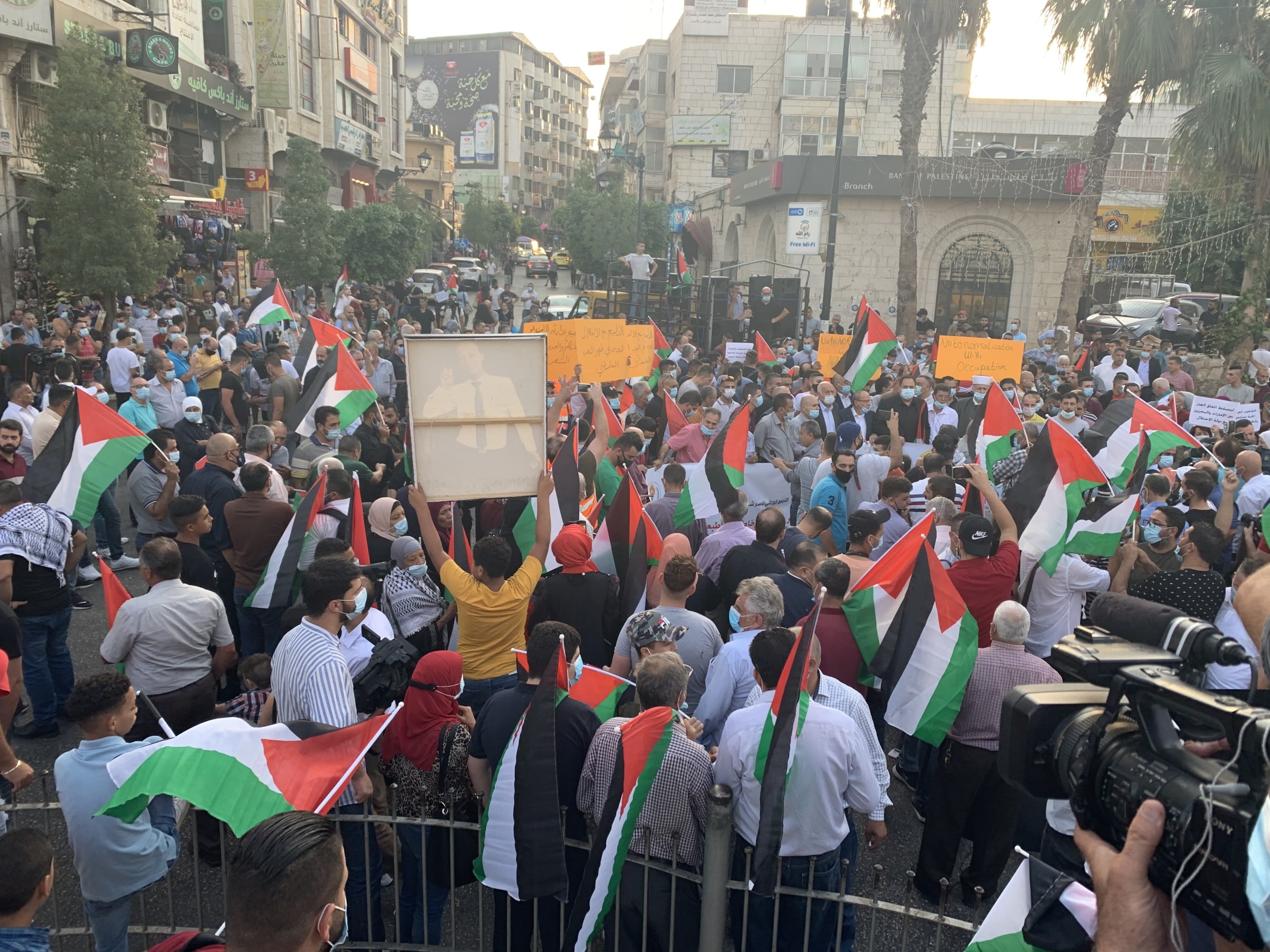
Palestinians in the Gaza Strip and the occupied West Bank launched protests denouncing the normalisation deals signed in Washington on Tuesday between Israel, Bahrain and the United Arab Emirates (UAE).
Both the Palestinian Authority (PA) and the Hamas movement, which governs the Gaza Strip, have condemned the US-brokered accords as a "stab in the back" to their people.
Starting early on Tuesday, protests in the occupied West Bank were held in Ramallah, Tulkarem, Nablus, Jericho, Jenin, Bethlehem and Hebron, among other smaller localities, as well as in Gaza City.
Protesters chanted and held posters denouncing normalisation and calling for Arab unity against Israel's occupation.
Israeli Prime Minister Benjamin Netanyahu and top diplomats from the UAE and Bahrain signed the agreements to normalise ties on Tuesday, without any progress on an Israeli-Palestinian settlement.
Hamas leader Ismail Haniyeh, who was in Beirut for a meeting with secretaries of Palestinian factions on Tuesday, told President Mahmoud Abbas in a phone call that all Palestinian factions were united against the deal, and "will not allow the Palestinian cause to be a bridge for recognition and normalisation with the occupying power at the expense of our national rights, our Jerusalem and the right of return".
On Monday, Palestinian Prime Minister Mohammad Shtayyeh described the accords as another "black day" for the Arab world.
"This will be another date to add to the calendar of Palestinian misery," he said, adding that the PA would have to "correct" its relationship with the Arab League for its refusal to condemn the two normalisation accords struck in the past month.
Bahrain's Foreign Minister Abdullatif al-Zayani and the UAE Minister of Foreign Affairs Abdullah bin Zayed bin Sultan Al Nahyan arrived in Washington on Sunday, while Netanyahu arrived on Monday amid calls for his resignation in Israel over his ongoing corruption probes and his government's mishandling of the coronavirus pandemic.
Bahrain and the UAE have not fought wars against Israel, unlike Egypt and Jordan, which signed peace treaties with Israel in 1979 and 1994 respectively.
'Day of popular uprising'
A new civil society group representing various factions called for "a day of popular uprising" on Tuesday to coincide with the signing of the deal.
The group, called the United Palestinian Leadership for Popular Resistance (UPLPR), was formed following the meeting between leaders of all Palestinian political factions in the Lebanese capital Beirut last week.
In its first statement, the group called for nationwide protests - named "the black day" - across Palestinian territories to demand the cancellation of the so-called "deal of the century" and Israeli occupation.
It also called for another day of protests - dubbed "day of mourning" - on Friday, during which black flags were to be raised to express rejection of the normalisation agreement.
On Tuesday, protests kicked off at 11am across the occupied West Bank.
In Hebron, minor clashes erupted between young Palestinians and Israeli forces in Bab al-Zaweya at the end of a demonstration, according to a Middle East Eye correspondent.
Fahmy Shaheen, the representative of National and Islamic Forces in Hebron, said that protests in his city reflected anger at the almost daily confrontation between residents and Israeli settlers and army forces due to the continued expansion of settlements in the historic city.
"We are expressing our rejection of normalisation because it is happening at the expense of the rights and sacrifices of the Palestinian people," Shaheen told MEE.
"It is also a free service to the United States and Israel, taking place at the expense of Arab aspirations for freedom.
"We are not betting on Arab regimes that are trading in the aspirations of their peoples and our Palestinian cause. We only bet on the Arab people who are united [in their belief] that Palestine is a central cause."
Meanwhile, Jamal Zahalka, head of the National Democratic Assembly party, who was taking part in a protest in Wadi Ara on Tuesday, described the signing of the normalisation agreement as "a dangerous gift from the UAE and Bahrain to Trump and Netanyahu, who are suffering a suffocating political crisis in their countries".
"Today, the UAE and Bahrain declare that they stand by the Israeli occupation against the Palestinian people. What is being discussed now is not normalisation, but rather a strategic alliance," he said.
"Whoever joins an alliance with Israel can never be with the Palestinian people and their just rights."
Faisal Salameh, the head of the popular committee in Tulkarem, told MEE that demonstrations there carried "a message of love and respect for all Arab peoples", despite criticism against the governments of the UAE and Bahrain.
Rocket fire and protests from Gaza
Just as the agreements were signed in Washington, reports came in that several rockets had been fired toward Israel from the Gaza Strip. Though it was unclear what group was responsible for the rocket fire, Israel holds the Hamas movement responsible for all attacks out of enclave.
Gaza also witnessed protests throughout the day, as hundreds marched against the normalisation deal.
Protesters gathered in front of Gaza City's Unesco building to express their disapproval of the deal.
Abdel-Haq Shehadeh, a member of the Fatah movement’s higher leadership in Gaza, criticised the UAE and Bahrain for not abiding by the 2002 Arab Peace Initiative, which outlined comprehensive steps to ending the Palestinian-Israeli conflict.
Shehadeh said he came to ask that any country thinking about following in the footsteps of the UAE and Bahrain to stop and reconsider, stressing that he did not believe the people of the Arab world agreed with such actions - a message reverberated throughout Palestinian protests on Tuesday.
During the protest, Ismail Radwan, a senior Hamas official, called the US-led initiative "a dagger in the back of the Palestinian people" and promised that "a comprehensive and unified strategy for all Palestinian factions to confront Israel" was being organised.
"To the rulers of the Emirates and Bahrain: You have given up support for the Palestinian people, and the Palestinian generations will not forget your position," Radwan said, while praising citizens of the two countries who had spoken up against their governments' decisions.
In Washington, 50 NGOs launced a protest outside the White House during the signing ceremony to voice their rejection.
Palestinian factions in Lebanon also organised protests on Tuesday to condemn the deal.
Middle East Eye propose une couverture et une analyse indépendantes et incomparables du Moyen-Orient, de l’Afrique du Nord et d’autres régions du monde. Pour en savoir plus sur la reprise de ce contenu et les frais qui s’appliquent, veuillez remplir ce formulaire [en anglais]. Pour en savoir plus sur MEE, cliquez ici [en anglais].


